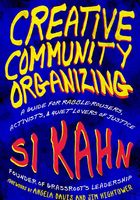Lima was described by Pascual in our news bulletins as 'an unforgettable artistic occasion and a four-star event in the history of Peruvian radio broadcasting.' His appearance on the airwaves of Panamericana cost me a story and an almost new shirt and tie, and caused me to stand Aunt Julia up for the second time. Before the Chilean bolero singer arrived in town, I'd seen countless photographs and laudatory articles about him in the papers ('Unpaid publicity, the very best kind,' Genaro Jr. said), but I didn't really realize how famous he was till I noticed the huge crowd of women lined up in the Calle Belén hoping to get passes to the broadcast. Since the auditorium of the station was small – a hundred seats or so – only a few lucky women managed to get the precious passes. On the night of the broadcast there was such a big crowd outside the doors of Panamericana that Pascual and I had to get up to our shack by way of the building next door, which opened onto the same rooftop terrace as our building. We prepared the seven o'clock bulletin, but there was no way of getting it down to the second floor.
'There's a whole shitload of women blocking the stairway, the door, and the elevator,' Pascual told me. 'I tried to get through, but they took me for a gate crasher.'
I phoned Genaro Jr., who was beside himself with joy.
'There's still an hour to go before Lucho's broadcast, and the crowd outside has already stopped traffic along the Calle Belén. All Peru is tuned in to Radio Panamericana at this moment.'
I asked him whether, given the circumstances, we should skip the seven and eight o'clock bulletins, but resourceful as ever, he came up with the idea of having us dictate them over the phone to the announcers downstairs. We did so, and in the hour between the two, Pascual listened, enraptured, to Lucho Gatica's voice on the radio and I reread the fourth version of my story about the eunuch-senator, which I'd finally ended up calling, in the manner of a Gothic horror tale, 'The Ruined Face.' At nine on the dot we heard the end of the program, the voice of Martínez Morosini bidding Lucho Gatica goodbye and the applause from the audience that this time wasn't canned but real.
Ten seconds later the telephone rang and I heard Genaro Jr.'s voice say in alarm: 'Get down here, any way you can. Things are getting out of hand.'
We had a terrible time making a hole in the solid wall of women jammed together on the stairway, whom Jesusito, the corpulent doorman stationed at the entrance to the auditorium, was holding back. Pascual kept shouting: 'Ambulance corps! Ambulance corps! We're coming to get somebody who's been hurt!' The women, young ones for the most part, looked at us indifferently or smiled, but didn't move aside and we had to push them out of the way. Once inside, we were greeted by a disconcerting spectacle: the celebrated artist was demanding police protection. He was a short little man, livid and filled with hatred toward his female admirers. The dynamic impresario was trying to calm him down, telling him that calling in the police would make a very bad impression, that this horde of girls was a tribute to his talent. But the celebrity was not at all swayed by that line of argument. 'I know their kind all too well,' he said, half terrified and half enraged. 'They begin by asking for an autograph and end up scratching and biting.'
We laughed, but reality bore out his predictions. Genaro Jr. decided that we should wait half an hour, thinking that Lucho's admirers would eventually get bored and go away. At ten-fifteen (I had a date with Aunt Julia to go to the movies), we'd gotten tired of waiting for them to get tired and made up our minds to leave. Genaro Jr., Pascual, Jesusito, Martínez Morosini and I linked arms and formed a circle round the celebrity, whose already pale face positively blanched the moment we opened the door. We managed to get down the first steps with no great damage done, by pushing and shoving with our elbows, knees, heads, and chests against the sea of females, who for the moment were content to applaud, sigh, and stretch out their hands to touch their idol – who, with a fixed smile on his marble-white face, kept muttering under his breath: 'Careful, fellows, don't let go of each others' arms.' But we fell victim to an all-out attack. They grabbed us by our clothes and tugged, and screaming at the top of their lungs reached for their idol with their fingernails to tear off pieces of his shirt and suit. When, after ten minutes of nearly being smothered or crushed to death, we finally fought our way to the exit, I thought we were about to let go of each other and had a vision: the little bolero singer was snatched away from us and torn limb from limb by his admirers before our very eyes. This didn't happen, but when we put him in Genaro Sr.'s car – he'd been waiting at the wheel for an hour and a half – Lucho Gatica and his iron guard had been transformed into survivors of a catastrophe. They had yanked my tie off and my shirt was in shreds; they had torn Jesusito's uniform and stolen his cap; and Genaro Jr. had a big purple bruise on his forehead where he'd been clouted with a handbag. The star was unhurt, but the only items of his attire that had remained intact were his shoes and his undershorts. The next morning, as we were taking our ten o'clock break at the Bransa, I told Pedro Camacho about the amazing feats of Lucho Gatica's horde of admirers. He wasn't at all surprised. 'My dear young friend,' he said to me philosophically, with a faraway look in his eyes, 'music too touches the soul of the multitude.'
As I had been struggling to defend the physical integrity of Lucho Gatica, Se?ora Agradecida, the charwoman, had cleaned the shack upstairs and thrown in the trash the fourth version of my story about the senator. Instead of being upset, I felt as though I'd been freed of a weight and took the whole thing as having been a warning from the gods. When I told Javier that I wasn't going to rewrite it yet again, he congratulated me for having come to that decision rather than trying to persuade me to change my mind.
Aunt Julia found my story of my experience as a bodyguard terribly amusing. Since the night of the furtive kisses in the Bolívar Grill, we'd been seeing each other almost every day. The day after Uncle Lucho's birthday, I'd dropped by the house unexpectedly, and luckily Aunt Julia was there alone.
'They've gone to visit your Aunt Hortensia,' she said, showing me into the living room. 'I didn't go with them because I know very well that that gossip spends all her time making up nasty stories about me.'
I took her by the waist, drew her to me, and tried to kiss her. She didn't push me away, but she didn't kiss me either: all I felt was her cold mouth against mine. As we stepped apart, I saw that she was looking at me without smiling: not in surprise, as on the night before, but rather with a certain curiosity and a faintly mocking gleam in her eyes.
'Look, Marito' – her voice was calm, affectionate – 'I've done all sorts of really crazy things in my life. But this is one I'm not going to do.' She burst into laughter. 'Me, seducing a kid? Never!'
We sat down and chatted for nearly two hours. I told her the whole story of my life – not my past life, but the one I was going to have in the future, when I lived in Paris and was a writer. I told her I'd wanted to write ever since I'd first read Alexandre Dumas, that since that moment I'd dreamed of going off to France and living in a garret, in the artists' quartier, dedicating my heart and soul to literature, the most marvelous thing in the world. I told her I was studying law to please my family, but that being a lawyer struck me as the dullest and most stupid of professions, one I had no intention of ever practicing. I realized at one point that I was speaking in the most heartfelt tones, and told her that this was the very first time I'd ever confessed such intimate things not to a buddy but to a woman.
'I seem like your mama to you, and that's the reason you're confiding in me,' Aunt Julia psychoanalyzed. 'So Dorita's boy has turned out to be a bohemian – who would ever have thought it? The trouble is, my son, that you're going to starve to death.'
She told me she hadn't slept a wink the night before, thinking of those furtive kisses in the Bolívar Grill. She couldn't get over the idea that Dorita's boy, the youngster that only yesterday she and his mama had taken off to Cochabamba to put in the La Salle school, the kid she thought of as still wearing short pants, the baby she let escort her to the movies so as not to have to go alone, had all of a sudden kissed her square on the mouth like a full-grown, experienced man.
'But I am a full-grown, experienced man,' I assured her, taking her hand and kissing it. 'I'm eighteen years old. And I lost my virginity five whole years ago.'
'Well, what does that make me then, if I'm thirty-two and lost mine fifteen years ago?' she laughed. 'A decrepit old lady!'
She had a loud, hearty laugh, spontaneous and joyous, that made her large, full-lipped mouth open wide and her eyes crinkle. She gave me an ironic, mischievous look that told me I was not yet a full-grown, experienced man in her eyes, but no longer a kid either. She got up to pour me a whiskey.
'After the liberties you took last night, I can't offer you Cokes any more,' she said, pretending to be embarrassed. 'I'm going to have to treat you like one of my suitors.'
I told her the difference in age between us wasn't all that tremendous.
'Not all that tremendous, no,' she answered. 'But almost – I'm very nearly old enough for you to be my son.'
She told me the story of her marriage. Everything had gone very well the first few years. Her husband had a ranch in the interior and she'd become so accustomed to living in the country that she rarely went to La Paz. The ranch house was very comfortable and she loved the peace and quiet of the place, the healthy, simple life: riding horseback, going on outings in the countryside, attending Indian fiestas. The first dark clouds had appeared when she couldn't get pregnant: her husband suffered at the thought of not having children. He'd begun to drink then, and from that time on the marriage had gone downhill, by way of quarrels, separations, and reconciliations, till finally they had broken up for good. They had remained good friends after the divorce.
'If I should ever happen to get married, I'd never have children,' I announced. 'Children and literature are incompatible.'
'Does that mean that I can present myself as a candidate and line up with the others?' Aunt Julia teased me.
She was very good at clever repartee, told risqué stories charmingly, and (like all the women I'd ever known thus far in my life) was terribly aliterary. I had the impression that during her many long, idle hours on her Bolivian hacienda the only things she'd ever read were Argentine magazines, some of Delly's trashy books, and no more than a couple of novels at most that she considered memorable: The Sheik and Son of the Sheik, by a certain E. M. Hull. As I said goodbye to her that evening, I asked her if we could go to the movies together, and she had replied: 'Yes, that's possible.' So we went to the movies almost every night, and besides sitting through a good many Mexican and Argentine melodramas, we'd given each other a good many kisses. The movies gradually became a pretext; we chose theaters (the Montecarlo, the Colina, the Marsano) that were the farthest away from the house on Armendáriz so as to be able to be together longer. After the movies let out, we took long strolls, 'making empanaditas' (she told me that that was how you said 'holding hands' in Bolivia), wandering through all the empty streets of Miraflores (we let go of each other's hand every time a passerby or a car appeared), talking about all sorts of things as – it was that dreary season known in Lima as winter – the continual drizzle soaked us to the skin. Aunt Julia went out every day to have lunch or tea with one or another of her many suitors, but she saved her evenings for me. We spent them at the movies, as a matter of fact, sitting in one of the very last rows at the back, where (especially if it was a terrible film) we could kiss without bothering the other spectators and without running the risk of somebody recognizing us. Our relationship had soon stabilized at some amorphous stage; it was situated at some indefinable point between the opposed categories of being sweethearts and being lovers. This was a subject that cropped up constantly in our conversations. We shared certain of the classic traits of lovers – secretiveness, the fear of being discovered, the feeling we were taking great risks – but we were lovers spiritually, not materially, since we didn't make love (and, as Javier was later shocked to learn, we didn't even 'feel each other up'). At the same time we shared with sweethearts a respect for certain classic rites observed by adolescent couples of Miraflores in those days (going to the movies, kissing during the film, walking down the street hand in hand), and our behavior was equally chaste (in that Stone Age the girls of Miraflores were almost always still virgins on their wedding day and would allow their breasts and their pudenda to be touched only after their sweetheart had been officially promoted to the status of fiancé and their engagement been formally announced, but how could that ever happen to us, given the difference in age between us and the fact that we were relatives?). Realizing how ambiguous and offbeat our relationship was, we made a game of thinking up amusing names for it and called it our English engagement, our Swedish romance, our Turkish drama.
'The love affair of a baby and an old lady who's also more or less your aunt,' Julia said to me one night as we were crossing the Parque Central. 'A perfect subject for one of Pedro Camacho's serials.'
I reminded her that she was only my aunt by marriage, and she replied that on the three o'clock serial a boy from San Isidro, terrifically handsome and an expert surfer, had had relations with his sister, no less, and, horror of horrors, had gotten her pregnant.
'Since when have you been listening to radio serials?' I asked.
'It's a contagious vice I caught from my sister,' she answered. 'The ones on Radio Central are fantastic, I must say, tremendous dramas that break your heart.'
And she confessed to me that sometimes she and Aunt Olga sat there listening with tears in their eyes. This was the first indication I had of the impact that Pedro Camacho's pen was having in the households of Lima. I had others during the next few days, in the households of several relatives. I happened to drop by Aunt Laura's, and the minute she spied me in the doorway of the living room she put her finger to her lips to signal me to be quiet, as she sat there leaning over her radio as though trying not only to hear but also to smell, to touch the (tremulous or harsh or ardent or crystalline) voice of the Bolivian artist. I appeared at Aunt Gaby's and found her and Aunt Hortensia mechanically unwinding a ball of yarn as they followed a dialogue, full of proparoxytones and gerunds, between Luciano Pando and Josefina Sánchez. And in my own house, my grandparents, who had always 'had a liking for little novels,' as my Grandmother Carmen put it, had now conceived a genuine passion for radio serials. I woke up in the morning nowadays to the strains of Radio Central's theme song – in their compulsive eagerness not to miss the day's first serial, the one at 10 a.m., they'd turned in far ahead of time; I ate my lunch listening to the one at two in the afternoon; and no matter what hour of the day I came home, I found my two little old grandparents and the cook curled up in the downstairs parlor, concentrating all their attention on the radio, a great heavy monster the size of a buffet that, to top everything else off, they always kept turned up to full volume.
'Why is it you like radio serials so much?' I asked my granny one day. 'What do they have to offer that books don't, for example?'
'It's more lifelike, hearing the characters talk, it's more real,' she explained, after thinking about it. 'And what's more, when you're my age, your hearing is better than your eyesight.'
I made a similar survey among some of my other relatives, and the results were inconclusive. Aunt Gaby, Laura, Olga, and Hortensia liked radio serials because they were entertaining, sad, or dramatic, because they were diverting and set a person to dreaming, to living things that were impossible in real life, because there were truths to be learned from them, or because every woman remains more or less of a romantic at heart. When I asked them why they liked soap operas more than books, they protested: what nonsense, there was no comparison, books were culture and radio serials mere claptrap to help pass the time. But the truth of the matter was that they lived with their ears glued to the radio and that I'd never seen a one of them open a book. During our nocturnal rambles. Aunt Julia sometimes gave me a résumé of certain episodes that had impressed her, and I in turn gave her a rundown of my conversations with the scriptwriter, and thus, little by little, Pedro Camacho became a constituent element in our romance.
It was Genaro Jr. himself who brought me solid proof of the success of the new serials, on the very same day that I finally managed, after a thousand protests, to get my typewriter back.
He turned up in our shack with a folder in his hand and a radiant expression on his face. 'It's exceeded our most optimistic calculations,' he told us. 'The number of listeners tuned in to the serials has gone up twenty percent in two weeks. Do you realize what that means? A twenty percent increase in the ad rates we charge sponsors!'
'And does it mean that we'll get a twenty percent raise in salary, Don Genaro?' Pascual said, bouncing up and down on his chair.
'You don't work at Radio Central but at Panamericana,' Genaro Jr. reminded us. 'We're a station with good taste – we don't broadcast serials.'
The entertainment sections in the newspapers soon came up with feature stories on the large audience that the new serials had attracted and began singing the praises of Pedro Camacho. And Guido Monteverde, in his column in última Hora, pulled out all the stops, calling him 'an expert scriptwriter with a tropical imagination and a romantic gift for words, an intrepid symphony conductor of radio serials, and himself a versatile actor with a mellifluous voice.' But the object of these laudatory adjectives took no notice of the wave of enthusiasm surrounding him. As I dropped by his cubicle one morning on my way to the Bransa to pick him up for our usual coffee break together, I found a sign pasted on the window with the crudely lettered inscription: 'No journalists admitted and no autographs given. The artist is working! Respect him!'
'Do you mean that, or is it a joke?' I asked him, as I sat sipping my café con leche and Pedro Camacho his cerebral cocktail of verbena-and-mint tea.
'I mean it in all seriousness,' he answered. 'The local press has begun to hound me, and if I don't put a stop to them there'll soon be a bunch of listeners lined up over there – he gestured in the direction of the Plaza San Martín as though such an eventuality were the most natural thing in the world – asking for autographs and photos. My time is as precious as gold to me and I don't want to waste it on foolish trifles.'
There wasn't an ounce of conceit in what he was saying, only sincere anxiety. He was wearing his usual black suit and little bow tie and smoking awful-smelling cigarettes, a brand called Aviación. As always, he was in an utterly serious mood. I thought I'd please him by telling him that all my aunts had become fanatic listeners of his and that Genaro Jr. was overjoyed at the results of the surveys showing how many new listeners his serials had attracted. But he was merely bored and shut me up – as though these things were inevitable and he'd always known all about them– and instead went on talking about how indignant he was at the lack of sensitivity on the part of 'the merchants' (an expression that from then on he always used when referring to the Genaros).
'There's a weak spot that's ruining the serials and it's my duty to remedy it and their duty to help me,' he announced, frowning. 'But obviously art and money are mortal enemies, like pigs and daisies.'
'A weak spot that's ruining the serials?' I said in amazement. 'But they're a complete success.'
'The merchants don't want to fire Pablito, even though I've insisted that he has to go,' he explained to me. 'They say they have to keep him on for sentimental reasons, because he's worked at Radio Central for I don't know how many years, and other such nonsense. As though art had anything to do with charity! That sick man's incompetence is absolutely sabotaging my work!'
Big Pablito was one of those indefinable, picturesque characters that the world of radio broadcasting attracts or produces. The diminutive suggested that he was just a kid, whereas in reality he was a mestizo in his fifties, who dragged his feet when he walked and had attacks of asthma that filled the air about him with clouds of effluvia. He was always somewhere about Radio Central and Panamericana, from morning to night, doing a little bit of everything, from giving the janitors a hand and going out to buy tickets for the movies and bullfights for the Genaros to distributing passes for broadcasts. His most permanent job was doing the sound effects for the serials.
'Those people think sound effects are dumb little things that any idiot can do. But in fact they're art too, and what does a half-moribund brachycephalic like Pablito know about art?' Pedro Camacho raved, with icy hauteur.
He assured me that, 'if need be,' he would not hesitate to eliminate, with his own hands, any obstacle to the 'perfection of his work' (and he said it in such a way that I believed every word he said). He added that to his vast regret he had not had time to train a sound-effects technician, teaching him everything from A to Z, but that after rapidly reconnoitering the 'Peruvian radio dial,' he had found what he was looking for.
He lowered his voice, glanced stealthily all around, and concluded, with a Mephistophelean air: 'The individual we ought to have for the serials is on Radio Victoria.'
Javier and I analyzed how good the chances were that Pedro Camacho would carry out his homicidal intentions with regard to Big Pablito, and we agreed that the latter's fate depended entirely on the surveys: if the number of listeners tuning in to the serials kept going up, he'd be ruthlessly sacrificed. As a matter of fact, before the week was out, Genaro Jr. suddenly appeared in the shack, surprising me in the midst of writing another story – he must have noticed my confusion and the haste with which I ripped the page out of the typewriter and slipped it in among the news bulletins, but he was tactful enough not to say anything – and, addressing both Pascual and me, announced with the sweeping gesture of a great Maecenas: 'All your griping has finally gotten you the new editor you've been wanting, you two lazybones. Big Pablito is going to be working with you from now on. Don't rest on your laurels!'
The reinforcement thus received by the News Service turned out to be more moral than material, inasmuch as when Big Pablito appeared in the office the next morning, very punctually, at seven on the dot, and asked me what he should do and I gave him the job of making a brief summary of a parliamentary report, a look of terror came over him, he had a coughing fit that left him purple in the face, and finally managed to stammer that that was impossible. 'The thing is, sir, I don't know how to read or write.'
I took the fact that Genaro Jr. had sent us an illiterate to be our new editor as a choice sample of his playful sense of humor. Pascual, who'd been a bit upset when he learned that he and Pablito were to be co-editors, positively gloated on hearing the latter confess that he was illiterate. He upbraided his brand-new colleague in my presence for his apathetic attitude, for not having been capable of educating himself as he, Pascual, had done, at an adult age, by going to free night-school classes. Big Pablito, scared to death, kept nodding in agreement, repeating like an automaton: 'That's true, I hadn't thought of that, that's so, you're absolutely right,' looking at me as though he expected to be fired on the spot. I immediately set his mind at rest, telling him that his job would be to take the news bulletins downstairs to the announcers. In actual fact, he soon became Pascual's slave, obliged to trot all day long from the shack to the street and vice versa to fetch Pascual cigarettes or stuffed potatoes from a street vendor on the Calle Carabaya, or simply to go see if it was raining outside. Big Pablito endured his slavery in an exemplary spirit of sacrifice, and in fact his attitude toward his torturer was even more respectful and friendly than his attitude toward me. When he wasn't running errands for Pascual, he would curl up in a corner of the office, and leaning his head against the wall, fall asleep instantly, snoring in steady, sibilant wheezes, like a rusty overhead fan. He was a generous-spirited man. He didn't feel the slightest ill will toward Pedro Camacho for having brought in an outsider from Radio Victoria to replace him. He had nothing but praise for the Bolivian scriptwriter, for whom he felt the most sincere admiration. He often asked my permission to go downstairs to sit in on rehearsals of the serials, returning each time more enthusiastic than ever. 'That man is a genius,' he would say, his voice choking with emotion. 'The ideas that pop into his head are simply miraculous.'
He always brought back very amusing stories of Pedro Camacho's inspired talents as an artist. One day he swore to us that Pedro had advised Luciano Pando to masturbate before delivering a love dialogue, claiming that by so doing he'd weaken his voice and produce a very romantic pant. Luciano Pando had flatly refused.
'I understand now why it is that every time there's a love scene coming up Don Pedro makes a visit to the downstairs bathroom, Don Mario,' Big Pablito said, crossing himself and kissing his fingers. 'To jerk off – that's why. And that's how come his voice sounds so soft and gentle afterwards.'
Javier and I had a long discussion as to whether this could be true or was just a story that our new editor had made up, and we arrived at the conclusion that, all things considered, there was sufficient reason not to regard it as absolutely impossible.
'It's things like that you should be writing a story about, not about Doroteo Martí,' Javier admonished me. 'Radio Central is a literary gold mine.'
The story I was trying my best to write at the time was based on an incident that Aunt Julia had told me about, one she herself had witnessed at the Teatro Saavedra in La Paz. Doroteo Martí was a Spanish actor who was touring Latin America, causing overflow audiences to shed floods of tears over La Malquerida and Todo un Hombre or other even more heartrending melodramas. Even in Lima, where theater was a mere curious relic, having died out the century before, the Doroteo Martí Company had drawn a full house at the Teatro Municipal for a performance of what, according to legend, was the ne plus ultra of its repertory: the Life, Passion, and Death of Our Lord. The actor had a strong sense of practicality, and malicious gossip had it that on occasion Christ broke off his sobbing soliloquy during his night of sorrows in the Garden of Olives to announce to the audience, in an affable tone of voice, that the following day the company would give a special performance to which ladies accompanied by an escort would be admitted free (whereupon Christ's Passion continued). It was in fact a performance of the Life, Passion, and Death that Aunt Julia had seen at the Teatro Saavedra. At the supreme instant, as Jesus Christ was dying on the heights of Golgotha, the audience noted that the wooden cross to which he was tied, surrounded by clouds of incense, was beginning to collapse. Was it an accident or a deliberately planned effect? Prudently, exchanging stealthy glances, the Virgin, the Apostles, the Roman soldiers, the populace in general began backing away from the teetering cross on which, his head still bowed upon his chest, Jesus-Martí had begun to murmur in a low voice that was nonetheless audible in the first rows of the orchestra: 'I'm falling, I'm falling.' Paralyzed, doubtless, with horror at the thought of committing sacrilege, none of the invisible occupants of the wings ran onstage to hold the cross upright, and it was now pivoting back and forth, defying numerous physical laws, amid cries of alarm that had replaced prayers on the actors' lips. Seconds later the spectators of La Paz saw Martí of Galilee come tumbling down, falling flat on his face on the stage of his great triumph, beneath the weight of the sacred rood, and heard the tremendous crash that shook the theater. Aunt Julia swore to me that Christ had managed to roar out in a savage voice, seconds before coming a cropper on the boards: 'Damn it to hell, I'm falling!' It was, above all, this very last scene that I wanted to re-create; my story, too, would end up with a bang, with Jesus cursing like a trooper. I wanted it to be a funny story, and to learn the techniques of writing humor, I read – on jitneys, express buses, and in bed before falling asleep – all the witty authors I could get my hands on, from Mark Twain and Bernard Shaw to Jardiel Poncela and Fernández Flórez. But as usual I couldn't get the story to turn out right, and Pascual and Big Pablito kept count of the number of sheets of paper I consigned to the wastebasket. Luckily, as far as paper was concerned, the Genaros were more than generous with the News Service.
Two or three weeks went by before I met the man from Radio Victoria who had replaced Big Pablito. In the days before Pedro Camacho's arrival at the station, anyone who wanted to could attend the recording sessions of serials, but the new star director had forbidden everyone except the actors and technicians to enter the recording studio, and to prevent anyone else from doing so he had ordered the doors to be closed and stationed Jesusito's intimidating bulk in front of them. Not even Genaro Jr. himself was exempt from this iron rule.
I remember the afternoon when, as always happened whenever he had problems and needed a shoulder to cry on, he appeared in the shack, his nostrils quivering with indignation, to tell me his complaints. 'I tried to enter the studio and he immediately stopped the program and refused to record it till I cleared out,' he said in a furious voice. 'And he gave me to understand that the next time I interrupted a rehearsal he'd throw the microphone at my head. What shall I do? Kick him out on his ass, or swallow the insult?'
I told him what he wanted to hear: that in view of the success of the serials ('for the greater glory of the entire Peruvian radio broadcasting industry,' etc.) he should swallow the insult and not set foot in the artist's territory again. He took my advice, but I for my part was still dying of curiosity and wanted desperately to attend a recording session of one of the scriptwriter's programs.
One morning as we were having our usual break at the Bransa, after feeling out the ground very cautiously I ventured to broach the subject to Pedro Camacho. I told him I was eager to see the new sound-effects man in action and find out whether he was as good as he said he was.
'I didn't say he was good; I said he was average,' he immediately corrected me. 'But I'm training him and he might be good someday.'
He drank a sip of his herb tea and scrutinized me with his little cold, punctilious eyes, assailed by inner doubts. Finally he gave in, and reluctantly agreed. 'All right then. Come tomorrow, to the one at three. But I can't allow you to come again, I regret to say. I don't like the actors to be distracted, any alien presence disturbs them, I lose control of them, and it's goodbye catharsis. The recording of an episode is a Mass, my friend.'
In fact, it was something even more solemn. Among all the Masses I remembered (I hadn't been to church in years), I never witnessed such a moving ceremony, such a deeply lived rite, as that recording of chapter 17 of 'The Adventures and Misadventures of Don Alberto de Quinteros' to which I was admitted. The session couldn't have lasted more than thirty minutes – ten to rehearse and twenty to record – but it seemed to me that it lasted for hours. I was immediately impressed by the reverent religious atmosphere that reigned in the little room with a glass panel and dusty green carpeting that went by the name of Radio Central Recording Studio Number One. Big Pablito and I were the only spectators present; the others were active participants. On entering the studio, Pedro Camacho had informed us with a martial look in his eye, we must remain as motionless as statues of salt throughout the session. The author-director seemed transformed: taller, stronger, a general issuing orders to disciplined troops. Disciplined? Enraptured, rather; bewitched, brainwashed fanatics. I could scarcely recognize Josefina Sánchez, with her mustache and her varicose veins, whom I had so often seen recording her lines while chewing gum and knitting, with her mind somewhere else entirely and giving the impression that she hadn't the least idea what she was saying, as being the same person as this utterly serious creature before me who, when not absorbed in going over the script word for word, like someone praying, kept her eyes trained, respectfully and obediently, on the artist, trembling like an innocent little girl gazing at the altar on the day of her First Communion. And the same was true of Luciano Pando and the other three actors (two women and a very young man). They didn't exchange a single word or so much as look at each other: as though magnetized, their eyes went from their scripts to Pedro Camacho. And on the other side of the glass panel even that popinjay, the sound engineer Ochoa, was enraptured: carefully monitoring the controls, pressing buttons, turning lights on and off, following with a grave and attentive frown everything that was happening in the studio.
The five members of the cast were standing in a circle around Pedro Camacho, who – dressed as usual in his black suit and little bow tie and with his hair flying every which way – was delivering a sermon on the chapter that they were about to record. It was not instructions that he was giving them, at least not in the prosaic sense of concrete indications as to how they were to speak their lines – in measured tones or exaggeratedly, slowly or rapidly – but rather, as was his habit, noble, olympian, pontifical pronouncements having to do with profound aesthetic and philosophical truths. And naturally it was the words 'art' and 'artistic' that were repeated most frequently in this feverish discourse, like some sort of magic formula that revealed and explained everything. But even more surprising than the Bolivian scriptwriter's words was the fervor with which he uttered them, and perhaps more surprising still, the effect that they caused. Gesturing furiously and standing on tiptoe as he talked, he spoke in the fanatical voice of a man in possession of an urgent truth that he must disseminate, share, drive home. He succeeded completely in doing so: the five actors and actresses listened to him in stupefaction, hanging on his every word, opening their eyes wide as though the better to absorb these maxims concerning their work ('their mission,' as the author-director put it). I was sorry Aunt Julia wasn't there, because she'd never believe me when I told her how I had seen, with my own eyes, this handful of practitioners of the most miserable profession in Lima totally transformed, transfixed, spiritualized, for the space of an eternal half hour, beneath the sway of Pedro Camacho's effervescent rhetoric. Big Pablito and I were sitting on the floor in one corner of the studio; in front of us, surrounded by all sorts of strange paraphernalia, was the brand-new acquisition, the defector from Radio Victoria. He too had listened to the artist's harangue with mystical rapture; the moment the recording of the chapter began, he became the center of the spectacle for me.
He was a stocky, copper-colored man, with stiff straight hair, dressed almost like a beggar: worn overalls, a much-mended shirt, big clodhoppers without laces. (Later I found out that he was called by the mysterious nickname of Puddler.) His work tools consisted of a wooden plank, a door, a washtub full of water, a whistle, a sheet of tinfoil, a fan, and other such ordinary-looking everyday articles. Puddler then proceeded to put on an extraordinary one-man show involving ventriloquism, acrobatic feats, multiple simultaneous impersonations, the creation of imaginary physical effects. At a given signal from the director-actor – a magisterial waggling of his index finger in the air filled with dialogue, tender sighs, and lamentations – Puddler, walking across his plank at a pace whose crescendo or diminuendo was carefully calculated, made the footsteps of the characters approach or retreat in the distance, and at another signal, turning the fan to blow at different speeds across the sheet of tinfoil, he produced the sound of rain falling or the wind howling, or at yet another, putting three fingers in his mouth and whistling, he filled the studio with the chirping of birds waking up the heroine in her country house on a spring morning. It was especially impressive when he created the sounds of a city street. It was Ochoa who provided, by means of a prerecorded tape, the sound of motors and horns honking, but all the other effects were produced by Puddler, by clacking his tongue, clucking, uttering, whispering (he seemed to be doing all these things at once), and all you needed to do was close your eyes to hear, reconstructed in the little Radio Central studio, the voices, the scattered words, the laughter, the exclamations that a person distractedly hears on walking down a crowded street. But as though this were not enough, at the same time that he was producing dozens of human voices, Puddler was also walking or leaping on the plank, manufacturing the footfalls of the pedestrians on the sidewalks and the sound of their bodies brushing against each other. He 'walked' both with his feet and with his hands (thrust into a pair of shoes), squatting on his haunches, his arms dangling like a monkey's, slapping his thighs with his elbows and his forearms. After having been (acoustically speaking) the Plaza de Armas at noon, it was a relatively trivial feat for him to re-create the chamber music, so to speak, of a tea offered by a Lima society matron to a group of her lady friends in her mansion and the tinkling of the porcelain cups by hitting two little iron bars together, scratching on a sheet of glass, and rubbing little pieces of wood on his behind to imitate the gliding of chairs and ladies' feet over the thick, soft carpets; or, by roaring, croaking, grunting, screaming, to incarnate phonetically (and enrich with a number of species not to be found there) the Barranco zoo. By the time the recording session was over, he looked as though he'd run the Olympic marathon: he was panting, his eyes had big dark circles under them, and he was sweating like a horse.
Pedro Camacho had contrived to imbue his collaborators with his own sepulchral seriousness. It was an enormous change. The serials from the CMQ in Cuba had most often been recorded in a circus atmosphere, and as the actors read their lines they would make faces or obscene gestures at each other, making fun of themselves and of what they were saying. But nowadays one had the impression that if someone had cracked the least little joke, the others would have flung themselves on him to punish him for his sacrilege. I thought for a time that they might perhaps be pretending so as to curry favor with their boss, so as not to be thrown out like the Argentines, that in their heart of hearts they weren't as certain as he was that they were 'priests of art,' but I was wrong. On my way back to Panamericana, I walked a few blocks along the Calle Belén with Josefina Sánchez, who was going home between serials to have herself a nice cup of tea, and I asked her whether the Bolivian scriptwriter always delivered a sermon before they recorded or whether the one I'd heard had been exceptional in any way. She gave me such a scornful look it made her double chin quiver.
'He said very little today and he wasn't inspired. Sometimes it breaks your heart to think that his ideas won't be preserved for posterity.'
Since she was someone 'who'd had so much experience,' as I put it, I asked her if she really thought that Pedro Camacho was a person possessed of great talent. It took her a few seconds to find words adequate to express her feelings on the subject: 'That man sanctifies the acting profession.'















